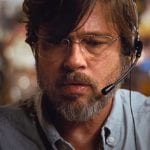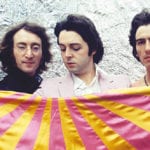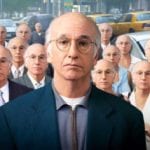 Movies and TV
Movies and TV  Movies and TV
Movies and TV  Creepy
Creepy 10 Eerie & Mysterious Ghosts of the Pacific Coast
 Weird Stuff
Weird Stuff 10 Typos That Accidentally Changed History
 History
History 10 Times Trickery Won Battles
 Technology
Technology 10 Awesome Upgrades to Common Household Items
 Misconceptions
Misconceptions 10 Hilarious (and Totally Wrong) Misconceptions About Childbirth
 Weird Stuff
Weird Stuff 10 Warning Labels That Exist Because Someone Actually Tried It
 Health
Health Ten Confounding New Inventions from the World of Biomedicine
 Creepy
Creepy 10 Death Superstitions That Will Give You the Creeps
 Movies and TV
Movies and TV 10 Movies That Get Elite Jobs Right, According to Experts
 Movies and TV
Movies and TV 10 Most Realistic Medical TV Shows of All Time
 Creepy
Creepy 10 Eerie & Mysterious Ghosts of the Pacific Coast
 Weird Stuff
Weird Stuff 10 Typos That Accidentally Changed History
Who's Behind Listverse?

Jamie Frater
Head Editor
Jamie founded Listverse due to an insatiable desire to share fascinating, obscure, and bizarre facts. He has been a guest speaker on numerous national radio and television stations and is a five time published author.
More About Us History
History 10 Times Trickery Won Battles
 Technology
Technology 10 Awesome Upgrades to Common Household Items
 Misconceptions
Misconceptions 10 Hilarious (and Totally Wrong) Misconceptions About Childbirth
 Weird Stuff
Weird Stuff 10 Warning Labels That Exist Because Someone Actually Tried It
 Health
Health Ten Confounding New Inventions from the World of Biomedicine
 Creepy
Creepy 10 Death Superstitions That Will Give You the Creeps
 Movies and TV
Movies and TV 10 Movies That Get Elite Jobs Right, According to Experts
10 Screen Greats Never Voted Oscar’s “Best”
And the Oscar goes to…somebody else. What could be a better demonstration of acting chops than to smile graciously into the camera when that special envelope is torn apart and another’s name is announced?
James Stewart was so modest about the Best Actor award he won for The Philadelphia Story that the statuette was displayed in the window of his father’s hardware store in Indiana, Pennsylvania, for decades. But Stewart’s humility aside, while it may be an honor just to be nominated for a competitive Oscar, it must be an even bigger honor to win. Unfortunately, some of Hollywood’s finest have not.
Here are 10 Hollywood greats that never won a Best Oscar for Picture, Actor, or Director.
Related: 10 Films Where The Supporting Role Was Better Than The Lead
10 Richard Burton
Richard Burton is known for playing powerful men in films such as Becket, The Robe, and Anne of a Thousand Days. He married Elizabeth Taylor—twice—and starred opposite her repeatedly as well. When they teamed up for Who’s Afraid of Virginia Woolf?, the no-holds-barred look at two couples and a toxic marriage earned Oscar nods for all four cast members. Taylor and supporting actress Sandy Dennis took home the prizes; Burton and George Segal struck out.
Throughout Burton’s career, he did Shakespeare (Hamlet, The Taming of the Shrew), historical epics (Cleopatra), and adaptations of popular books and plays (The Spy Who Came in From the Cold, Equus). He racked up seven nominations over twenty-five years. A win? Nope. During that time, he also played himself on the TV sitcom Here’s Lucy and Man in Strip Club (uncredited) in What’s New Pussycat?, but surely, the Motion Picture Academy did not hold those against him.[1]
9 Peter O’Toole
Peter O’Toole surpassed Burton by earning eight nominations over forty-four years without a win. Like his countryman, he played royalty, including Henry II—twice. But the second time was not the charm, even as Katharine Hepburn, his costar in The Lion in Winter, won her third of four Oscars playing opposite him. He was recognized for performances in drama (Lawrence of Arabia), comedy (My Favorite Year), and whatever one might call the fascinating mishmash that is The Ruling Class.
When the Academy announced in 2003 that it would present O’Toole with an Honorary Award for his body of work, he replied that since he was “still in the game and might win the lovely bugger outright, would the Academy please defer the honor until I am 80?” The Academy said it would give it to him anyway, and O’Toole ultimately accepted. Before that milestone birthday, he did get one more shot with a nomination for Venus. But…he lost again.[2]
8 Glenn Close
Glenn Close already had a Tony nomination under her belt when she landed her first screen role in The World According to Garp. That film debut earned her a Best Supporting Actress nomination. She would be similarly honored the next two years for The Big Chill and The Natural before moving on to Best Lead Actress nominations for Fatal Attraction and Dangerous Liaisons.
Perhaps she has her own love/hate relationship with Oscar. Three more nominations in recent years, but still no win. Quite surprising since, during her long career, she has won three Tony awards for two plays and the musical Sunset Boulevard, Golden Globes, Prime Time Emmys, and everything from Cable Ace Awards to an AARP Movies for Grownups Award.
And what honor could match having her image as Norma Desmond selected by the nonprofit group Broadway Cares to be the model for its 2020 Broadway Legends Holiday Ornament?[3]
7 Cary Grant
If the Motion Picture Academy had given an award for Most Charming, Cary Grant, born Archibald Leach, would have filled his trophy case. After a string of forgettable films, his breakout role came in 1933’s She Done Him Wrong, where Mae West asked him the famous, and often misquoted, question, “Why don’t you come up some time…”
Over the next thirty years, he starred opposite dazzling leading ladies, including Marlene Dietrich, both Hepburns (Katharine and Audrey), Myrna Loy, Ingrid Bergman, Grace Kelly, and Sophia Loren. He was nominated twice during the 1940s for dramatic roles. He outran a crop duster’s plane in Alfred Hitchcock’s North by Northwest, but he also won hearts in classic comedies such as The Philadelphia Story, His Girl Friday, Mr. Blandings Builds His Dreamhouse, and Arsenic and Old Lace.
Finally, in 1970, he was given an Honorary Award “For his unique mastery of the art of screen acting with the respect and affection of his colleagues.” By chance, that was the same year Burton and O’Toole lost yet again, and Grant’s wife Dyan Cannon, thirty-three years his junior, was nominated but did not win for Bob & Carol & Ted & Alice.[4]
6 Ian McKellen
British actor Ian McKellen played King Lear and Richard III on the stage and was knighted by Queen Elizabeth II for his service to the performing arts. On this side of the Atlantic, he scored an Oscar nomination for Gods and Monsters. However, he is best known for a single role: Gandalf, whom he brought to life in the three-part fantasy epic The Lord of the Rings, which earned him a second nomination and roles in the three movies based on The Hobbit.
Although he did not win, following his first turn as the wizard, he had the consolation prize of hosting Saturday Night Live in 2002. Needless to say, Sir Ian did not walk the red carpet for his work in the recent film version of Cats.[5]
5 George Lucas
In what galaxy has George Lucas never won an Oscar? Uh…this one. That is not to say the Academy has ignored the man who gave us Luke Skywalker, Princess Leia, Han Solo, and the rebirth of science fiction on the big screen. Lucas’s first of two nominations for Best Director and Best Writing came for 1973’s American Graffiti, in which he cast an unknown actor whose previous work had been primarily on TV shows such as Mod Squad, The F.B.I., and Love, American Style: Harrison Ford.
Lucas’s disappointment at his lack of trophies may be eased by the fact that the first three movies in the Star Wars universe (based on their release dates, or Parts IV, V, and VI in the story sequence) raked in a combined gross of more than $750 million, and that was at 1970s-1980s ticket prices.
In 1992, he received the Academy’s Irving G. Thalberg Memorial Award, with appropriate presenters: the orbiting crew of the space shuttle Atlantis. If all this was not enough, in 2012, Disney bought Lucasfilm and the extra goodies of Industrial Light & Magic and Skywalker Sound that went with it for over $4 billion in cash and Disney shares. That will buy a lot of popcorn for when he watches his Oscar-less films.[6]
4 James Earl Jones
The hands-down favorite for Best Baritone has to be James Earl Jones. The man with the big voice first hit the big screen in 1964 as a member of Slim Pickens’s flight crew in the outrageous dark comedy Dr. Strangelove or: How I Learned to Stop Worrying and Love the Bomb, released at the height of the Cold War.
His only Oscar nomination came six years later for The Great White Hope, where he played boxer Jack Jefferson, the role that had earned him a Tony the previous year. Jones used his rich tones to portray the villainous Vader, the heroic Mufasa, and everything in between, but not to say, “I’d like to thank the Academy…” until his well-deserved Honorary Award in 2012.[7]
3 The Color Purple
Based on the Pulitzer Prize-winning novel by Alice Walker, the 1985 film version of The Color Purple was showered with a whopping eleven nominations ranging from Best Picture to Best Costume Design and Original Score, plus recognition for the performances of Whoopi Goldberg and Oprah Winfrey.
Notably absent from the nominees was the movie’s director, Steven Spielberg, who had already established himself as a box office winner with the blockbusters Jaws, Close Encounters of the Third Kind, and Raiders of the Lost Ark. Still, his snub was the least of it. On Oscar night, The Color Purple was skunked, finishing 0 for 11, matching only 1977’s The Turning Point for that dubious distinction.[8]
2 The Wizard of Oz
Everybody loves this timeless tale of munchkins, witches, brains, heart, and courage—okay, maybe not so much love for the flying monkeys but definitely for Toto too. And while there may be no place like home, it is also true that timing is everything.
When competing for the 1939 Oscar honors, The Wizard of Oz ran into a cultural buzzsaw, losing Best Picture to the movie mega-event that was Gone With the Wind. But then so did the enduring favorites Mr. Smith Goes to Washington, Ninotchka, Wuthering Heights, and Stagecoach. The Wizard of Oz did win Best Original Score and Best Song for the magical “Over the Rainbow,” showcased by the golden voice of Judy Garland, who was recognized with a special Juvenile Award. But Dorothy and her pals can be satisfied that their impact has aged better than that of Rhett and Scarlett.[9]
1 Citizen Kane
Hard to believe, but Citizen Kane, perched atop many Best of … lists, including the American Film Institute’s ranking of The 100 Greatest American Movies of All Time, was not voted Best Picture in its own time. Perhaps there were a lot of Donald Crisp fans in the Academy because Orson Welles’s masterwork lost to How Green Was My Valley.
While Welles was nominated for Best Actor and Best Director, he had to settle for sharing the Best Original Screenplay award with Herman Mankiewicz. Over the next four decades, the multi-talented Welles never received another nomination as an actor, writer, or director. At the 1971 ceremony, he was given an Honorary Award “For superlative artistry and versatility in the creation of motion pictures.” [10]








